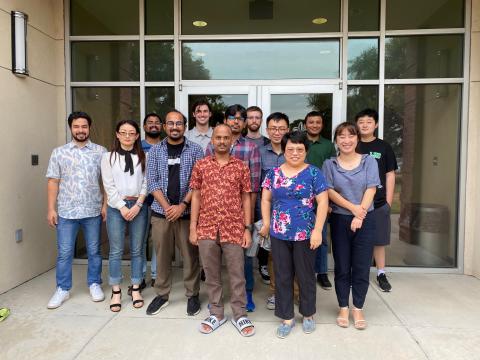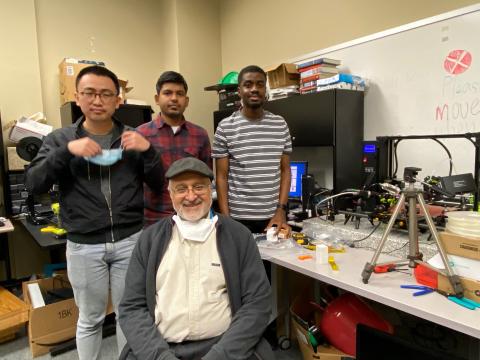Major Research Instrumentation Grant
Sun, 11/20/2022 - 1:42pmComputing and informatics faculty members Xiali (Sharon) Hei (principal investigator), Christoph Borst, and Mohsen Amini Salehi and college of engineering faculty Raju Gottumukkala, and Zhongqi Pan, have received a major 3-year grant for research that could improve the safety of surgical robots and other “cyber-physical” systems in health care. The $1,134,297 by the National Science Foundation grant "MRI: Development of High-Confidence Medical Cyber-Physical System Research Instrument with Benchmark Security Software" will be matched by an additional grant of $486,127 from UL Lafayette. The research team also includes Arun Lakhotia, and Anthony Maida from computing and informatics, Alan A. Barhorst, Mohammad R. Madani, and Hui Yan from the college of engineering; and Frances Stueben from the college of nursing & health sciences.

Advances in health care increasingly involve specialized hardware and software such as pacemakers and robotic equipment. However, these advances can introduce new risks, including computer network failures and attacks from hackers. Clearly, patient safety depends on reliable and secure hardware and software.
As a key project component, the grant will purchase an experimental Raven II surgical robot and support the team as they develop a testbed for their methods for detecting and dealing with events that threaten safety and security. They will work on both hardware (for example, touch sensing) and software (human–machine security, physical-control security, and AI security), as well as the interfaces between these components.
Medical cyber-physical systems (MCPS) require high reliability and security because they are safety critical. The lack of test benchmarks, suitable hardware-software interfaces, and easy-to-test hardware platforms makes it challenging to evaluate, verify, and validate the security mechanisms and reliability of high-confidence MCPS (HC-MCPS). This project aims to develop a configurable, extendable, opensource, reliable, human-in-the-loop HC-MCPS testbed. The HC-MCPS testbed will improve the ability to simulate attack/defense models and it will provide a simulation platform for cyber-physical attacks, artificial intelligence (AI) attacks, control instability detectors, and allow the researchers to conduct multidisciplinary research.
The instrument will enable researchers to make medical cyber-physical systems more reliable and secure, ultimately improving the quality of healthcare. It will contribute to research, training, and teaching at UL Lafayette by enabling a large number of federally and state-funded projects in the areas of Computer Science, Electrical Engineering, Mechanical Engineering, Robotic Telesurgery, and Nursing. The instrument will also be used outside of UL Lafayette to support cyber-enabled collaborative operations and data sharing among over twenty collaborators.


